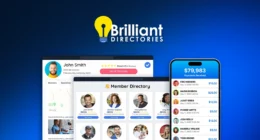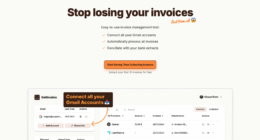CRM software helps online retailers manage customer relationships and boost sales through automated tools and data insights. Modern ecommerce CRM systems centralize customer information from websites, social media, and purchase histories to create detailed buyer profiles. Popular platforms like Salesforce, HubSpot, and Zoho offer features including sales automation, personalized marketing, and analytics dashboards. The right CRM solution transforms customer data into actionable strategies that drive growth and enhance the shopping experience. Exploring specific platform features reveals which solution best fits a business’s unique needs.
Quick Overview
- CRM software centralizes customer data from multiple channels, enabling personalized experiences and targeted marketing campaigns in ecommerce stores.
- Popular platforms like Salesforce, HubSpot, and Zoho CRM offer specialized features for online retail businesses of different sizes.
- Integration capabilities with ecommerce platforms ensure seamless data flow between your online store and customer management system.
- Sales automation features help recover abandoned carts, generate product recommendations, and streamline the entire purchase process.
- Analytics tools provide real-time insights into customer behavior, helping optimize sales strategies and improve conversion rates.
Understanding the Role of CRM in Modern Ecommerce
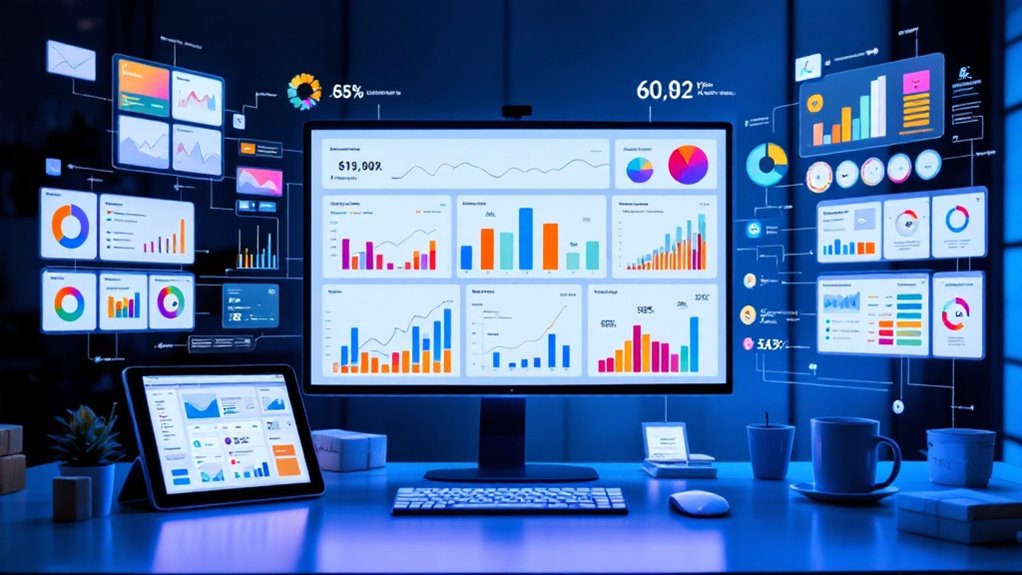
Modern ecommerce businesses face the constant challenge of managing growing customer relationships across multiple digital channels. Customer Relationship Management (CRM) software serves as a central hub for organizing and optimizing these crucial connections.
In today’s digital marketplace, CRM systems help businesses gather customer data from various touchpoints, including website visits, social media interactions, and purchase history. This extensive approach enables companies to create detailed customer profiles, leading to more personalized experiences and targeted marketing efforts. The implementation of workflow automation capabilities significantly enhances team efficiency by reducing manual workload. Leading platforms like ActiveCampaign offer email automation tools that help businesses deliver personalized content to their customers at scale.
CRM software also streamlines essential business operations by automating routine tasks, improving sales forecasting, and enhancing inventory management.
The role of CRM extends beyond basic data collection, providing valuable insights through analytics and reporting tools that help businesses make informed decisions about their marketing strategies, customer service improvements, and overall growth initiatives.
Essential Features to Look for in Ecommerce CRM Solutions
When selecting a CRM solution for an ecommerce business, identifying the right combination of features can make the difference between streamlined success and digital disappointment.
Unlike traditional B2B systems, modern ecommerce CRM platforms should offer extensive tools that support both customer relationships and personalized experiences at scale.
- Customer Data Management capabilities must include unified cross-channel data collection and AI-powered insights, helping businesses understand their customers better. Modern solutions like Edge CRM incorporate AI-driven qualifiers to enhance customer understanding and segmentation.
- Sales and Marketing Automation features should offer personalized recommendations and automated cart recovery to boost conversion rates.
- Analytics and Reporting tools need to provide real-time KPI tracking and customizable dashboards for data-driven decision making.
- Integration options must be robust, connecting with popular ecommerce platforms like Shopify and WooCommerce while maintaining scalability for future growth.
Top CRM Platforms for Online Retail Businesses
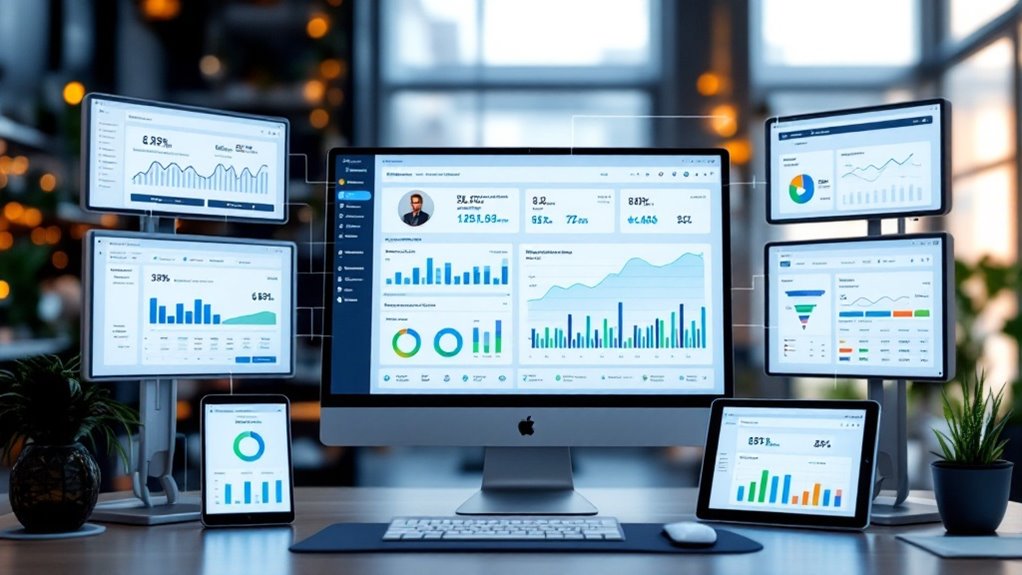
Leading CRM platforms for ecommerce have evolved to meet the distinct challenges of online retail businesses, offering specialized features that drive growth and enhance customer relationships. Among the top contenders, Salesforce Commerce Cloud stands out for large enterprises, while HubSpot CRM offers a user-friendly solution with robust marketing capabilities.
Modern CRM solutions empower ecommerce businesses with tailored features, from enterprise-grade platforms to user-friendly marketing tools.
Zoho CRM provides excellent value with its customizable workflows, and Freshsales leverages AI technology for enhanced customer interactions. These solutions excel at contact management capabilities, enabling businesses to organize and track all customer information in a centralized database. Modern platforms like monday CRM offer visual dashboards for intuitive data representation and workflow management.
For businesses seeking cost-effective solutions, both HubSpot and Zoho offer free starter plans. These platforms seamlessly integrate with popular ecommerce systems, payment gateways, and social media channels.
Mobile accessibility is a standard feature across these solutions, allowing teams to manage customer relationships on-the-go through native iOS and Android apps with real-time data access and offline capabilities.
Maximizing Sales Performance With CRM Analytics
The power of CRM analytics transforms raw customer data into actionable sales strategies for ecommerce businesses. Through advanced data analysis, companies can identify customer behavior patterns, optimize sales processes, and make data-driven decisions that boost revenue. The platform’s AI-powered features provide automated discovery of hidden insights, enabling more strategic decision-making for sales teams. Similar to intent data capabilities found in modern ABM platforms, these analytics help identify and track buyer behavior patterns.
Modern CRM platforms offer sophisticated tools for tracking performance metrics and automating key sales functions.
- Sales teams can leverage automated lead scoring to prioritize high-potential prospects and focus their efforts on the most promising opportunities.
- Real-time dashboards provide instant visibility into key performance indicators, helping managers adjust strategies quickly.
- Predictive analytics help forecast future sales trends and identify potential cross-selling opportunities.
- Customer lifetime value analysis enables businesses to develop targeted retention strategies and optimize resource allocation.
These analytical capabilities empower ecommerce businesses to streamline their sales processes and achieve sustainable growth through data-backed decision-making.
Integrating CRM Systems With Your Online Store
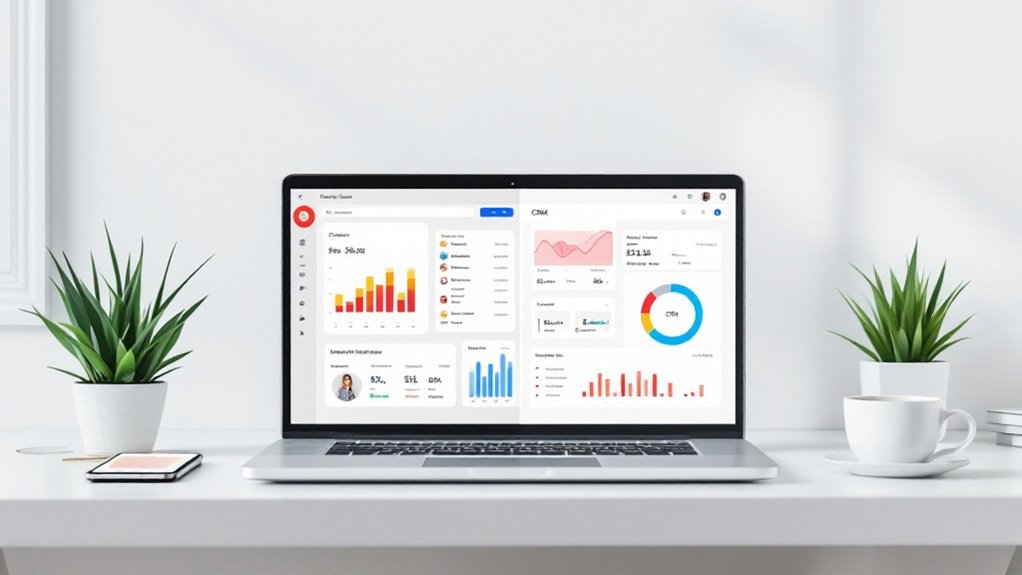
Successfully integrating a CRM system with an online store creates a powerful foundation for streamlined ecommerce operations. The process requires careful planning and attention to key integration components that work together seamlessly. A comprehensive CRM integration enables organizations to maintain complete interaction histories of customers in a centralized database. Popular tools like email automation platforms help businesses personalize customer communications and boost engagement.
| Integration Component | Business Impact |
|---|---|
| Order Automation | Faster fulfillment |
| Customer Data Sync | Better personalization |
| Campaign Management | Increased sales |
| Analytics Tools | Smarter decisions |
| Inventory Control | Reduced stockouts |
To guarantee successful integration, businesses should start by defining clear objectives and selecting compatible tools. The implementation process typically involves choosing the right integration method, whether through APIs, plugins, or custom solutions. Regular testing and monitoring help identify potential issues early. While challenges like data silos and technical complexity may arise, following best practices and partnering with experienced developers can help overcome these obstacles effectively.
Frequently Asked Questions
How Long Does It Typically Take to Train Staff on CRM Software?
Training staff on CRM software typically takes 2-4 months, though timeframes vary based on system complexity and team size.
Basic CRM training often includes:
- Initial classroom sessions (3-5 days)
- Virtual module training (2-4 hours each)
- Self-paced learning (4-6 weeks)
- Hands-on practice (2-3 weeks)
Most teams achieve basic proficiency within 6-8 weeks, while mastery of advanced features may require 3-4 months.
Ongoing support and refresher training help maintain skill levels.
What Security Measures Protect Customer Data Stored in Ecommerce CRM Systems?
Just as a fortress protects its treasures with multiple layers of defense, modern CRM systems employ several security measures to safeguard customer data.
These typically include AES 256-bit encryption for data storage and transmission, role-based access control with multi-factor authentication, and real-time monitoring systems.
Additionally, compliance with regulations like GDPR and CCPA guarantees proper data handling, while regular security audits and intrusion detection systems maintain vigilant protection against potential threats.
Can CRM Systems Handle Multiple Currencies and International Tax Regulations?
Modern CRM systems effectively handle multiple currencies and international tax regulations. They offer features like automatic currency conversion, real-time exchange rate updates, and support for 100+ currencies.
These systems can manage complex tax calculations based on different regional requirements and regulations. Additionally, they provide customizable tax rules, location-based calculations, and thorough reporting capabilities.
This functionality enables businesses to operate globally while maintaining accurate financial management and compliance.
How Often Should Businesses Update Their CRM Software?
Businesses should update their CRM software every 1-2 years, though cloud-based systems often receive automatic updates more frequently. The timing depends on several factors:
- Company growth rate and changing needs
- Security requirements and patch releases
- Integration needs with other business tools
- Industry compliance updates
Organizations should also monitor key indicators like system performance, user feedback, and emerging technology requirements.
Regular updates guarantee peak functionality and maintain competitive advantage in customer relationship management.
What Happens to Customer Data When Switching Between Different CRM Platforms?
Like a delicate dance between systems, customer data undergoes a careful shift when switching CRM platforms.
The process typically involves exporting data from the old system, mapping fields to match the new platform’s structure, and importing records while maintaining data integrity.
During migration, businesses must clean existing data, validate accuracy, and guarantee proper security measures.
Post-transfer verification confirms all customer information transferred correctly and remains accessible in the new system.
Conclusion
Time is money in ecommerce, and implementing the right CRM software can make every minute count. By selecting a platform with robust features, seamless integration capabilities, and powerful analytics, online retailers can transform customer data into meaningful relationships and increased sales. Whether choosing an established solution or an emerging platform, the key is finding a CRM system that aligns with specific business goals and growth plans.






